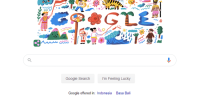Data Base? Apa itu? – Mendengar istilah database pasti hubungannya adalah dengan sistem komputer. Perkembangan teknologi yang akhirnya menciptakan komputer ini sangat membantu kehidupan manusia dalam berbagai aspek seperti yang dikutip dari website Tedas.
Ada banyak kemudahan-kemudahan yang dihadirkan sehingga pekerjaan jadi ringkas dan cepat. Data base adalah semua informasi yang tersimpan di dalam komputer dengan sistematik sehingga mudah untuk diolah, dimanipulasi serta diperiksa.
Apakah pengertian database secara mendalam dan bagaimana fungsinya? Simak secara lengkap di sini.
Pengertian Data Base dari Berbagai Sumber
Ada banyak ahli yang mengartikan database secara umum dan spesifik. Mereka adalah orang-orang yang ahli dalam bidang teknologi informasi dan menerjemahkan data base adalah sebagai berikut ini.
1. Fabri dan Schwab
Definisi database yang dimaksud dari kedua ahli ini adalah sistem berkas terpadu yang telah dirancang secara khusus sehingga meminimalisir pengulangan data yang menimbulkan redundancy data.
2. Abdul Kadir
Bagi Abdul Kadir database merupakan basis data untuk mengorganisir sekumpulan data yang memiliki keterkaitan. Tujuannya untuk mempermudah aktivitas dalam memperoleh informasi kapan saja.
3. Jogiyanto
Pengertian database menurut Jogiyanto adalah informasi dari data atau info yang saling berhubungan. Data disimpan di komputer dengan menggunakan software tertentu untuk melakukan manipulasi.
4. S. Atte
Data base adalah basis data yang merupakan koleksi data saling berhubungan dalam sebuah organisasi atau perusahaan, tujuannya untuk beragam fungsi.
5. Toni Fabbri
Pengertian database menurut Toni Fabbri adalah sistem file serta data yang terintegrasi di mana terdapat primary key yang berfungsi sebagai pengulangan data
6. C.J Date
Koleksi data menurut C.J Date merupakan informasi yang sengaja disimpan dan nantinya digunakan sistem aplikasi dalam sebuah perusahaan atau organisasi.
7. Gordon C. Everest
Apa itu database merupakan kumpulan data yang sifatnya mekanis, terdefinisi, terbagi, dan secara formal dan terkontrol dan semuanya terpusat dalam sebuah organisasi.
Apabila dirangkum dari berbagai pengertian basis data oleh para ahli di atas, maka data base adalah sebuah informasi yang dikumpulkan dalam komputer. Info berubah menjadi sebuah data yang dikumpulkan berupa file.
Nantinya data base ini berfungsi untuk kinerja karyawan baik itu audit hingga pengolahan data di berbagai divisi.
Baca juga : Cara Buat Rute Google Maps dengan Banyak Tujuan
Kegunaan Database
Apa yang dimaksud dengan data base sekarang sudah sangat jelas. Lalu apa saja kegunaan data yang sudah dikumpulkan tersebut? Tentunya ada banyak tujuan tertentu bagi sebuah perusahaan atau organisasi wajib memiliki database.
Berikut ini beberapa tujuan dari penggunaan database yang menjadikannya sangat penting untuk dimiliki.
- Data dan informasi dapat dikelompokkan sehingga mudah untuk dibaca.
- Supaya tidak ada duplikasi dan data yang tidak konsisten.
- Proses penyimpanan, akses dan pembaharuan serta penghapusan data menjadi lebih mudah.
- Kualitas data serta informasi semua yang diakses sama seperti yang di input.
- Proses penyimpanan data yang besar bukan suatu masalah.
- Peningkatan kinerja aplikasi yang perlu penyimpanan data.
Dilihat dari kegunaannya, basis data adalah informasi yang sangat vital. Ketika terorganisir dengan baik maka semua karyawan yang membutuhkan akses data menjadi lebih mudah.
Manfaat Adanya Database
Selain tujuannya sebagai data yang disimpan dan terorganisir, ada banyak manfaat lainnya yang akan didapatkan dari database ini. Manfaat yang didapatkan dari data base adalah sebagai berikut ini:
1. Data mudah untuk dibagi
Data disimpan dalam server yang sama sehingga memudahkan data untuk dibagi ke semua komputer dengan cepat. Para karyawan yang perlu akses data tinggal mengakses melalui server saja.
2. Data lebih aman
Dibandingkan data yang disimpan terpisah di komputer, akan sulit menjaga keamanannya. Data penting riskan untuk diambil oleh orang yang tidak memiliki akses sekalipun.
3. Data tidak mudah diubah
Data yang sudah disimpan tidak mudah untuk diubah. Jadi data adalah kumpulan info independen yang tidak bisa diubah seenaknya. Walaupun data bisa diakses.
4. Tidak terjadi data ganda
Sistem atau software komputer yang digunakan untuk menyimpan data memiliki fitur untuk membatasi penggunaan data ganda. Sehingga tidak akan terjadi redudansi basis data atau data ganda yang tersimpan.
5. Kualitas data terjaga
Melalui software jugalah, data yang disimpan tidak akan terlalu sulit untuk diakses serta kualitasnya tetap terjaga. Tidak ada data hilang karena tidak mudah dihapus seenaknya. Selain itu, data juga kualitasnya tetap baik.
Macam-Macam Tipe Database
Sistem atau software adalah alat yang digunakan untuk menyimpan data dan melakukan pengolahan. Semua data disimpan sehingga kualitasnya tetap terjaga serta bisa digunakan kapan saja.
Software untuk database sendiri berbeda-beda tergantung dengan jenis dan tujuan penggunaan data tersebut. Beberapa software basis data adalah sebagai berikut ini.
1. Data Warehouse
Sesuai dengan namanya data warehouse ini memiliki ruang yang cukup besar sehingga bisa digunakan untuk menyimpan banyak sekali data dari bertahun-tahun lamanya. Tentunya sangat berfungsi apabila data tersebut akan digunakan beberapa tahun ke depan.
Kebanyakan yang menggunakan jenis database ini adalah perusahaan-perusahaan media.
2. Analytical Database
Merupakan sebuah database yang berfungsi untuk menyimpan informasi serta data yang sumbernya dari operasional. Bisa juga berasal dari database luar atau eksternal.
3. Distributed Database
Merupakan database yang digunakan supaya akses kantor cabang lebih mudah. Data dikelompokkan pada tempat kerja lokal dan berbagai divisi di perusahaan besar.
4. Operational Database
Database jenis ini berfungsi untuk penyimpanan data secara mendetail, tujuannya untuk mendukung operasi dalam organisasi secara keseluruhan. Sehingga detail apapun yang dicari bisa didapatkan dengan mudah.
5. End User Database
Jenis yang kelima ini berbasis dari pengguna akhir. Jadi yang menggunakan data adalah pengguna akhir dengan bentuk file data yang akan dikembangkan dari masing-masing tempat kerja end user.
6. Document Oriented Database
Untuk jenis yang ini, khusus untuk penyimpanan data yang berbentuk dokumen. Jadi jika data yang disimpan berbentuk video atau audio tidak dapat disimpan. Oleh karena itu biasanya kapasitas penyimpanannya tidak sebesar data multimedia.
7. Real time Database
Merupakan sistem yang bisa mengolah data khusus beban kerja yang sering berubah-ubah. Contohnya saja penanganan dalam masing-masing negara. Data yang disimpan terus menerus bertambah dan berubah serta tidak terpengaruh waktu.
8. In Memory Database
Jenis yang selanjutnya adalah tempat penyimpanannya berupa memori. Data bisa disimpan tergantung dengan memori pada komputer.
9. Navigational Database
Database ini akan mengelompokkan data berdasarkan queries. Jadi semua data akan mengikuti referensi berdasarkan objek tertentu.
10. External Database
Merupakan database yang memiliki tambahan akses untuk keluar serta data pribadi secara online.
11. Hypermedia Database in The Web
Data disimpan dalam sebuah website dan isinya adalah sekumpulan multimedia. Semua data saling berhubungan dan terdiri dari berbagai macam mulai dari homepage. hyperlink dan lain sebagainya.
12. Relational Database
Database ini berdasarkan standar komutasi bisnis. Jenis inilah yang paling banyak digunakan untuk perusahaan-perusahaan besar.
Mengenal Perangkat dan Langkah Pembuatan Database
Software menjadi bagian vital dari pembuatan database. Software merupakan program yang digunakan dalam pengelolaan serta memanggil kueri database Management System (DBMS). Disebut juga sebagai Sistem Manajemen Basis Data.
Ada dua komponen yang terdapat dalam ODBMS yaitu Relational Database Management System atau RDBMS. Ada juga Overview of Database Management System (ODBMS).
Bagian yang termasuk dalam ODBMS adalah Query Engine, Language Drives, Stores Engine, Transaction Engine. Sedangkan RDBMS merupakan SQL Engine, Interface Drivers, Transaction Engine, Storega Engine dan Relational Engine.
Khusus untuk software terbagi menjadi dua yaitu Low Level Software yang termasuk di dalamnya adalah Tsunami Record Manager dan Btrieve. Jenis yang kedua adalah High Level Software dan yang termasuk di dalamnya adalah Paradox, FoxPro, Interbase, Sybase, Oracle, SQL Server, Xbase.
Sedangkan untuk tahapan perancangan database sendiri terdiri dari beberapa tahapan, karena tidak bisa dibuat begitu saja. Berikut ini beberapa tahapan yang bisa diikuti:
Merencanakan database
Mengartikan sistem
Analisis dan mengumpulkan kebutuhan
Merancang database
Merencanakan aplikasi
Pembuatan prototype
Mengimplementasikan
Mengkonversi data
Menguji
Pemeliharaan operasional
Jenis-Jenis Software untuk Database
Data base adalah bagian yang sangat penting dalam perusahaan, tentu saja karena dengan adanya database kinerja jadi lebih mudah. Namun ada banyak sekali jenis software yang bisa dipilih untuk digunakan sesuai dengan kebutuhan.
Ada beberapa jenis pilihan software yang bisa digunakan yaitu sebagai berikut ini:
1. MySQL
Merupakan software yang sistem manajemen basis datanya adalah SQL atau DBMS dan sudah diinstal lebih dari 6 juta pengguna di dunia. Perangkat gratis ini berada di bawah lisensi GNU atau general Public License (GPL).
MySQL juga menjual softwarenya melalui lisensi komersial jika tidak cocok dengan lisensi gratisan GPL. MySQL memiliki sponsor yaitu perusahaan asal Swedia yaitu MySQL AB. Perusahaan ini memiliki hak cipta atas hamper untuk semua kode sumbernya.
Perusahaan ini didirikan oleh David Axmark, Michael Monty dan Allan Larson.
2. RDBMS/ Relational Database Management System
MySQL merupakan Relational Database Management System yang bisa digunakan secara gratis dengan lisensi dari General Public License (GPL). Semua orang bisa bebas menggunakan MySQL tetapi produk tidak bisa dijadikan turunan yang sifatnya komersial.
MySQL adalah konsep utama dalam pembuatan database sejak pertama kali. Khususnya untuk operasional data yang dikerjakan secara otomatis. Apabila dibandingkan dengan software lainya, MySQL adalah yang paling unggul dibandingkan database server yang lainnya.
Keunggulannya terlebih pada hal query data dan untuk single user. Kecepatan query nya bisa 10 kali dibandingkan PostgreSQL.
3. Microsoft SQL Server
Software ini menggunakan sistem relasional atau RDBMS dan merupakan produk dari perusahaan Microsoft sesuai dengan namanya. Bahasa kueri yang digunakan adalah Transact-SQL dan merupakan implementasi SQL standar ANSI atau ISO.
Biasanya SQL server hanya digunakan untuk bisnis menengah dan kecil, namun telah dikembangkan sehingga bisa digunakan untuk bisnis besar. Jaringan yang digunakan oleh Microsoft SQL adalah protocol TDS atau Tabular Data Stream.
Khusus untuk bahasa pemrograman Java, Microsoft SQL Server memiliki driver JDBC dan mendukung ODBC. Fitur lain yang dimilikinya adalah mampu menciptakan basis data mirroring serta clustering.
Namun Ms SQL server pernah mengalami serangan cacing komputer SQL Slammer pada tahun 2000 yang mengakibatkan akses internet menjadi lambat.
4. Clipper
Software ini berasal dari bahasa pemrograman keluarga XBase dengan sistem operasi DOS. Biasanya Clipper dimanfaatkan untuk membuat program terkait dengan bisnis. Contohnya saja software akuntansi, simpan pinjam dan keuangan lainnya.
Clipper adalah software yang pertama kali diperkenalkan tahun 1985 oleh Nantucket. Penemuan ini kemudian dibeli oleh Computer Associates dan menjadi compiler untuk Dbase III dan sangat populer.
Dbase mengubah kode interpretasi dari komputer yang setiap saat dijalankan menjadi P-code atau Pseudo code. Melalui mesin virtual, p-code dikompilasi dan bisa lebih cepat bekerja dibandingkan interpreter.
5. Firebird
Disebut juga dengan FIrebirdSQL yang merupakan sistem manajemen basis data relasional dan ada begitu banyak fitur yang masuk dalam standar ANSI SQL-99 serta SQL-2003. RDBMS bisa bekerja dengan baik dalam program Lanuz, Windows dan pada berbagai macam platform Unix.
Firebird diciptakan serta diolah oleh FirebirdSQL Foundation dan turunan dari Interbase versi open source dari Borland. Ada banyak modul kode baru yang ditambahkan dalam Firebird serta lisensinya dari Initial Developers Public License atau IDPL.
Modul aslinya sendiri dirilis oleh Inprise berlisensi di bawah InterBase Public License 1.O. Dua lisensi tersebut adalah versi modifikasi dari Mozilla Public Licenses 1.1.
6. DBASE
Merupakan sistem DBMS yang digunakan pada mikrokomputer dan diperkenalkan oleh Ashton Tate pada komputer CP/ M. Baru setelah itu digunakan pada platform Apple II dan Apple Macintosh serta IBM PC dengan DOS.
DBASE adalah software yang sangat laris di beberapa tahunnya setelah rilis. Sayangnya produk ini akhirnya tergantikan dengan software lain karena tidak mampu bertransisi pada sistem operasi baru seperti Ms Windows.
Software penggantinya seperti Clipper, Paradox, Foxpro, dan Ms Access. Akhirnya Dbase pun dijual pada Borland di tahun 1991 dan di tahun 1980 variasi dialek mulai banyak dibuat oleh vendor lain.
Kini Dbase banyak digunakan sebagai format sederhana dalam penyimpanan data yang terstruktur yaitu file.dbf. Dbase sendiri memiliki jangka waktu penggunaan yaitu lima tahun.







